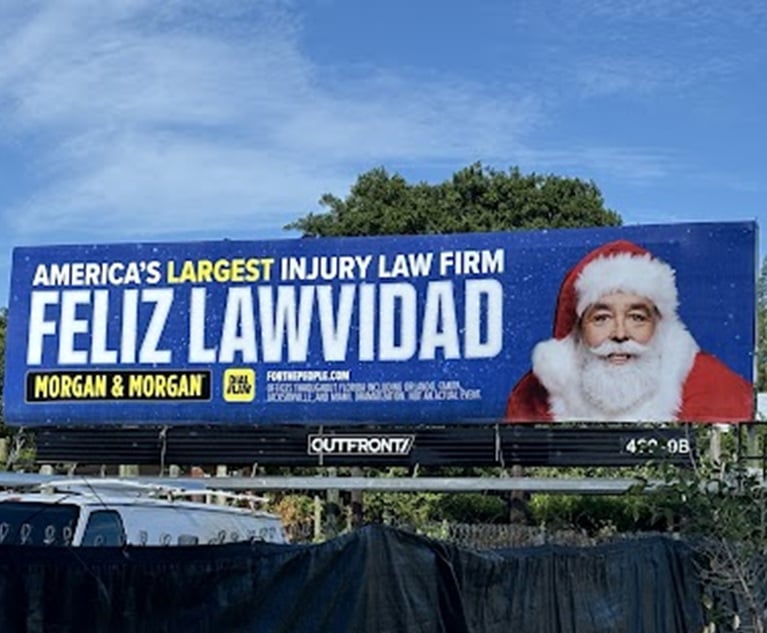 Pennsylvania State Capitol. Photo: Zack Frank/Shutterstock.com
Pennsylvania State Capitol. Photo: Zack Frank/Shutterstock.comDrifting Away From Precedent?: Some See Pa. Supreme Court Upending Established Case Law
Cooper, a former president of the Pennsylvania Association for Justice, said that, although the high court may be trimming back some precedential decisions, its focus remains on the Pennsylvania Constitution.
December 23, 2019 at 09:00 AM
6 minute read
At the beginning of 2019, Pennsylvania Supreme Court Justice David Wecht issued an opinion in the closely watched case Gallagher v. Geico in which he decried what he saw as the court "upending … well-established precedent" and supplanting its own judgment over that of the legislature.
It was not the only time the justice sparred with the other members of the court about their perceived departures from precedent, and in late October, he distanced himself again from the court's ruling in another high-profile case—this time in Yanakos v. UPMC—saying that the majority's standard for reviewing the issue was "contrary to our precedent" and "encroach[ed]" on the legislature.
Wecht's words serve to highlight what some court watchers have observed as the current make-up of the court's willingness to reconsider, and in some cases diverge from, longstanding precedent. Although some legal observers dispute why and the degree to which the court has scrapped precedent compared to other iterations of the high court, attorneys who monitor the body largely agree the court has not been shy about looking at issues in a new light.
According to Scranton-based insurance defense attorney Daniel Cummins of Foley, Comerford & Cummins, the past few years have marked a "new era" of the court.
"The Supreme Court has become like a snowplow truck, clearing precedent off the highway of Pennsylvania law and dropping salt as it passes by to melt away any remnants of the law as we knew it," Cummins said, specifically regarding the Gallagher decision.
According to Cummins, that ruling was the latest in a line of cases overturning precedent that included 2018′s Balentine v. Chester Water Authority, which expanded the exception to governmental immunity by holding that involuntary movement of a vehicle constituted an "operation," and Cagey v. PennDOT, in which the court limited the Pennsylvania Department of Transportation's immunity from suits involving guardrails.
After the justices ruled in Yanakos, Cummins said that was another example of the court diverging from longstanding precedent.
"That's going to change the course of Pennsylvania law going forward. It's certainly a shift compared to decisions in the past," Cummins said.
Although the fact that the high court has reconsidered precedent numerous times in the past few years is clear from a review of the body's output, not all agree that the current iteration of the court is any more willing to diverge from precedent than the court had when other justices sat on the bench.
"This is something that supreme courts do as times and circumstances and their personnel change," Marshall Dennehey Warner Coleman & Goggin attorney John Hare said.
Hare likened the body to the U.S. Supreme Court, which sparked its own debate about precedent in 2019 after overturning precedent in cases involving property rights and sovereign immunity, among other things.
Lamb McErlane attorney Maureen McBride also said she did not think the court was overturning precedent more frequently than prior versions of the court. Although she said the court appeared to have expanded the law in some areas, she said that was due to the court more broadly interpreting the law.
"I don't think the court is overturning existing case law, as much as it is reading more broadly into things like the Constitution," McBride said.
The justices' November decision in Yanakos, which struck down the MCARE statute of repose as violating the Pennsylvania Constitution's guarantee of open access to the courts, is a clear example of the court broadly applying the Constitution's remedies clause to make a shift in the law.
Cummins, however, said the several decisions that went against precedent expanded liability for defendants and opened new avenues for plaintiffs to recover—rulings, he said, that could force the defense bar to adjust their tactics.
"I think now that we're seeing this, it makes defendants reluctant to bring issues all the way up to the Supreme Court, and instead to resolve cases before it gets to that point," he said. "On the flip side, it would appear that the plaintiffs bar is trying to bring everything they can up to the Supreme Court with its current bench."
Schmidt Kramer attorney Scott Cooper, who was a leading attorney on Gallagher, disputed the notion that the court was simply favoring one side over another, and said the court has been more strictly interpreting the law—at least when it comes to the Motor Vehicle Financial Responsibility Law.
Cooper said that, when it comes to auto insurance cases, for years courts have been following precedent that was not based on an interpretation of the law, but was rather an outgrowth of cases that arose through bad facts.
"Bad facts make bad law," he said. "We finally have a court that is looking at the law and applying it."
In Gallagher, the justices ruled 5-2 that the household vehicle exclusions cannot be used to bar injured claimants from recovering stacked coverage. Breaking with decades of precedent, the justices said the exclusions acted as a "de facto waiver" of stacked coverage.
In footnotes in the majority opinion, Justice Max Baer said the decision breaks with the Supreme Court's 2011 holding in Government Employees Insurance v. Ayers, and the 2009 decision in Erie Insurance Exchange v. Baker. However, Baer said the court's holding did not go against principals of stare decisis because the court split evenly in Ayers and the holding in Baker was a plurality decision.
Cooper, a former president of the Pennsylvania Association for Justice, said that, although the high court may be trimming back some precedential decisions, its focus remains on the Pennsylvania Constitution.
"What the Supreme Court's saying is, 'whether this was the intent or not; whether this was said or not said, there's nothing we can do about it. The Constitution is the Constitution,'" Cooper said. "They're applying the law. The highest law."
This content has been archived. It is available through our partners, LexisNexis® and Bloomberg Law.
To view this content, please continue to their sites.
Not a Lexis Subscriber?
Subscribe Now
Not a Bloomberg Law Subscriber?
Subscribe Now
NOT FOR REPRINT
© 2024 ALM Global, LLC, All Rights Reserved. Request academic re-use from www.copyright.com. All other uses, submit a request to [email protected]. For more information visit Asset & Logo Licensing.
You Might Like
View All
Pa. Judicial Nominee Advances While Trump Demands GOP Unity Against Biden Picks
4 minute read
Morgan & Morgan Looks to Grow Into Complex Litigation While Still Keeping its Billboards Up
6 minute read
‘What’s Up With Morgan & Morgan?’ Law, Advertising and a Calculated Rise
10 minute read
Pa. Firms Set to Finish Year Strong, Thanks to Demand Uptick, Shorter Collections Cycle
4 minute readLaw Firms Mentioned
Trending Stories
- 1Trump's SEC Overhaul: What It Means for Big Law Capital Markets, Crypto Work
- 2Armstrong Teasdale's London Creditors Face Big Losses
- 3Texas Court Invalidates SEC’s Dealer Rule, Siding with Crypto Advocates
- 4Quinn Emanuel Has Thrived in China. Will Trump Help Boost Its Fortunes?
- 5Manufacturer Must Provide Details Surrounding Expert’s Livestreamed Inspection, Fed Court Rules
Who Got The Work
Michael G. Bongiorno, Andrew Scott Dulberg and Elizabeth E. Driscoll from Wilmer Cutler Pickering Hale and Dorr have stepped in to represent Symbotic Inc., an A.I.-enabled technology platform that focuses on increasing supply chain efficiency, and other defendants in a pending shareholder derivative lawsuit. The case, filed Oct. 2 in Massachusetts District Court by the Brown Law Firm on behalf of Stephen Austen, accuses certain officers and directors of misleading investors in regard to Symbotic's potential for margin growth by failing to disclose that the company was not equipped to timely deploy its systems or manage expenses through project delays. The case, assigned to U.S. District Judge Nathaniel M. Gorton, is 1:24-cv-12522, Austen v. Cohen et al.
Who Got The Work
Edmund Polubinski and Marie Killmond of Davis Polk & Wardwell have entered appearances for data platform software development company MongoDB and other defendants in a pending shareholder derivative lawsuit. The action, filed Oct. 7 in New York Southern District Court by the Brown Law Firm, accuses the company's directors and/or officers of falsely expressing confidence in the company’s restructuring of its sales incentive plan and downplaying the severity of decreases in its upfront commitments. The case is 1:24-cv-07594, Roy v. Ittycheria et al.
Who Got The Work
Amy O. Bruchs and Kurt F. Ellison of Michael Best & Friedrich have entered appearances for Epic Systems Corp. in a pending employment discrimination lawsuit. The suit was filed Sept. 7 in Wisconsin Western District Court by Levine Eisberner LLC and Siri & Glimstad on behalf of a project manager who claims that he was wrongfully terminated after applying for a religious exemption to the defendant's COVID-19 vaccine mandate. The case, assigned to U.S. Magistrate Judge Anita Marie Boor, is 3:24-cv-00630, Secker, Nathan v. Epic Systems Corporation.
Who Got The Work
David X. Sullivan, Thomas J. Finn and Gregory A. Hall from McCarter & English have entered appearances for Sunrun Installation Services in a pending civil rights lawsuit. The complaint was filed Sept. 4 in Connecticut District Court by attorney Robert M. Berke on behalf of former employee George Edward Steins, who was arrested and charged with employing an unregistered home improvement salesperson. The complaint alleges that had Sunrun informed the Connecticut Department of Consumer Protection that the plaintiff's employment had ended in 2017 and that he no longer held Sunrun's home improvement contractor license, he would not have been hit with charges, which were dismissed in May 2024. The case, assigned to U.S. District Judge Jeffrey A. Meyer, is 3:24-cv-01423, Steins v. Sunrun, Inc. et al.
Who Got The Work
Greenberg Traurig shareholder Joshua L. Raskin has entered an appearance for boohoo.com UK Ltd. in a pending patent infringement lawsuit. The suit, filed Sept. 3 in Texas Eastern District Court by Rozier Hardt McDonough on behalf of Alto Dynamics, asserts five patents related to an online shopping platform. The case, assigned to U.S. District Judge Rodney Gilstrap, is 2:24-cv-00719, Alto Dynamics, LLC v. boohoo.com UK Limited.
Featured Firms
Law Offices of Gary Martin Hays & Associates, P.C.
(470) 294-1674
Law Offices of Mark E. Salomone
(857) 444-6468
Smith & Hassler
(713) 739-1250





